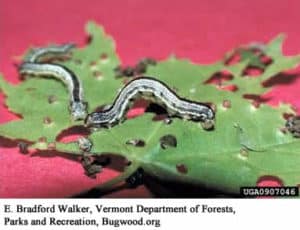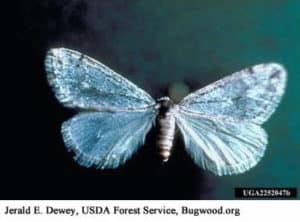 Cankerworms are caterpillars when in their immature phase and develop into moths as adults. They are common native pests to hardwood trees in North America. They are often called inchworms, loopers or measuring worms.
Cankerworms are caterpillars when in their immature phase and develop into moths as adults. They are common native pests to hardwood trees in North America. They are often called inchworms, loopers or measuring worms.
The fall cankerworm has a four stage life cycle. It begins as an egg, being laid in a single layered, compact mass of 100 or more on the bark of smaller branches and twigs, often high in the crown of a tree from October to December.
The larvae hatches in spring as buds begin to open, usually late April or early May. They feed on opening buds and young leaves, eventually skeletonizing them. Trees commonly affected are: apple, beech, cherry, elm, hickory, linden, maples and oaks. In Charlotte, the large concentration of old willow oaks is especially hard hit.
Within six weeks the cankerworms are one inch long and vary in color from light green to brownish green,with a dark stripe running down the middle of the back and white stripes along each side. By mid-June they drop to the ground and pupate in the soil, emerging as adult moths by fall.
After mating in the fall the wingless, female moth climbs a tree to lay eggs that will hatch in spring, thus completing the life cycle. These wingless females are a dull grey color, the males are the same except they often have two light, wavy stripes on their forewings. Cankerworm populations in Charlotte have increased steadily for the past twenty years. In the fall of 2008 the fall cankerworm infested more than 73,000 acres, or 40% of the City. Natural predators have not increased their populations to the levels that will keep the cankerworms from harming tree canopies. Various control methods have been used, such as aerial spraying and trapping, in the past.
 The current control method being implemented is Tree Banding. Approximately 1200 City trees will be banded in late November, after most leaves have fallen. A sticky substance will be placed on the tree band to trap the female as she climbs to lay eggs. Bands will be removed in the spring.
The current control method being implemented is Tree Banding. Approximately 1200 City trees will be banded in late November, after most leaves have fallen. A sticky substance will be placed on the tree band to trap the female as she climbs to lay eggs. Bands will be removed in the spring.
Thank you for reviewing this information. Schneider Tree Care is committed to preserving and enhancing the quality of your property through tree care education and services. We employ professionally trained and certified arborists who are available to meet with you for a consultation at no charge. If you have any questions or need additional information regarding the health of your trees, please contact us.





